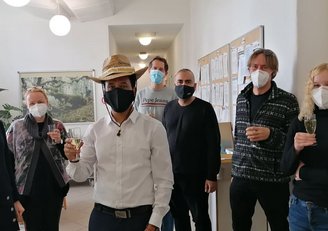Agroforestry is a land use management system in which trees or shrubs are grown around or among crops or pastureland. Sustainable forms of agroforestry can contribute to reduce atmospheric carbon and mitigate climate change. Since they include trees, they have a higher biomass than other grass-based systems and therefore have a higher capacity to store atmospheric carbon dioxide. Therefore, it is crucial to better understand the role of agroforestry systems in providing multiple ecosystem services and other socio-economic benefits.
The study by Mr. Tesfay was aimed amongst others to investigate plant species diversity, carbon pools, compare soil nutrients, and livelhihood support of agroforsetry systems with nearby monocropping farms. The research showed that local agroforestry systems have a high potential to serve as ‘refuge’ for critically endangered species of plants. At the study sites 52 plans were counted, of which 13 species were recorded as of interest for conservation (according the IUCN ‘Red Lists’). The average ecosystem carbon stock values were higher than reported for some agroforestry systems in Ethiopia and other tropical regions.
His research is an important contribution to the conservation of native species in agroforestry, while at the same time allowing local communities an economic return in a sustainable way. It further contributes to the development of a national policy concerning the conservation of biodiversity, the mitigation of climate change, and the implementation of international mechanisms such as “Reducing Emissions from Deforestation and Forest Degradation” (REDD+) and “Clean Development Mechanism” (CDM).
Hafte Mebrahten Tesfay received his MSc degree in Agroforestry from Hawassa University, Ethiopia. From 2006-2010 he served as an expert of soil conservation and head of land administration and environmental protection in one of the Ethiopian districts. Before he started his PhD at the University of Natural Resources and Life Sciences (BOKU), Vienna he served as a lecturer and researcher at Dilla University and later at Hawassa University, Ethiopia.

